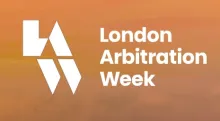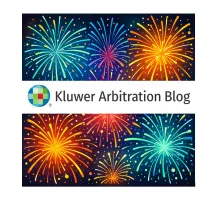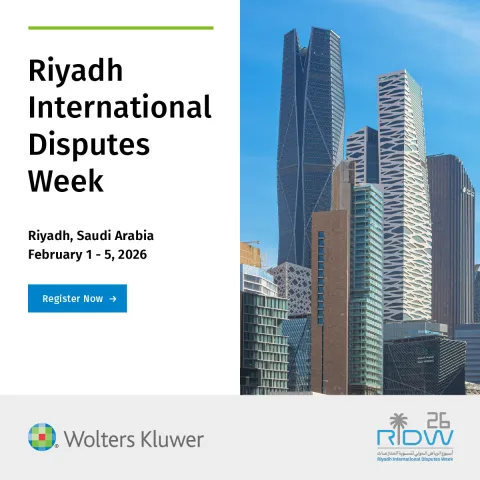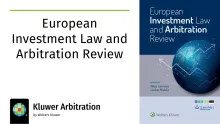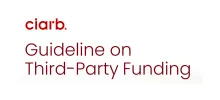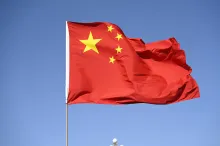Switzerland Joins the EU with a new Article 29d: Do the new EU and Swiss “Shields” Neutralise Russian Anti-Suit Injunctions?
November 11, 2025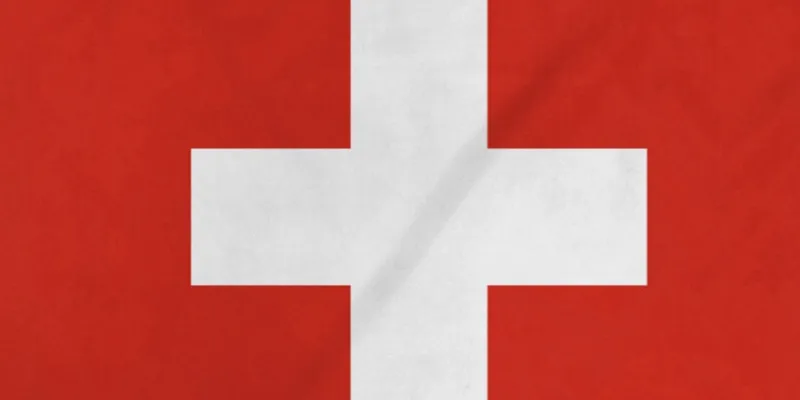
Over the last few years, Russian courts have been issuing anti-suit, anti-arbitration and anti-enforcement injunctions under Articles 248.1 and 248.2 of the Arbitrazh Procedure Code of the Russian Federation (“APC”). In short, under these provisions, a sanctioned Russian party may ask Russian courts to assert “exclusive jurisdiction” (Article 248.1) and to restrain foreign court or arbitral proceedings (Article 248.2), irrespective of agreed jurisdiction or arbitration clauses, on the premise that sanctions impede its access to justice abroad. Injunctions routinely carry penalty threats up to the value of the “foreign claim” plus costs. Where a Western party has attachable assets, these penalties can neutralise a favourable foreign judgment or award and pressure that party into litigating in Russia. For background on how these measures have been deployed and expanded, see this recent Kluwer Arbitration Blog post.
The European Union (“EU”) responded on 16 December 2024 by adding Article 11c to EU Regulation No 833/2014, directing that no injunction or other court decision pursuant to or derived from Articles 248.1 and 248.2 APC (or equivalent Russian provisions) “shall be recognized, given effect or enforced in a Member State”. The same applies to related penalties. For context on the EU’s broader sanctions architecture around Regulation No 833/2014, see an overview here.
Switzerland has now followed on 13 February 2025 with Article 29d of the Ordinance on Measures in Connection with the Situation in Ukraine (SR. 946.231.176.72) which likewise bars recognition, implementation and enforcement in Switzerland of such Russian measures. By denying legal effect of Russian court decisions, the aim of these provisions is to neutralise the extraterritorial bite of Russian measures into the EU.
What Does This Mean for Case Strategy?
Parties facing a Russian injunction can now remove not only the EU- but also Swiss-enforcement risk from the equation. A Russian penalty for continuing EU- or Swiss-seated proceedings should be a dead letter. Counsel can therefore advise clients to keep proceedings moving in the agreed forum and focus asset-risk assessments on exposure in jurisdictions outside the EU/Swiss shield. The EU/Swiss shields should also be considered when choosing the seat for arbitration proceedings. For further guidance on choosing seats amid sanctions, see also this recent Kluwer Arbitration Blog post.
If a Western party has assets in Russia, it should weigh whether the value of a favourable foreign award or judgment could be neutralised by enforcement in Russia of a penalty for non-compliance with a Russian injunction. If so, the party may prudently refrain from pursuing foreign proceedings. The same applies where assets are located in jurisdictions that may enforce Russian decisions. A recent example is the Spas TV dispute: On 9 October 2025 South Africa’s Supreme Court of Appeal ordered enforcement of a Moscow Commercial Court ruling, obliging Google International LLC to reimburse about RUB 10 billion in dividends received from its Russian subsidiary, which had declared bankruptcy in 2023. Similar exposure may exist in certain CIS member states operating under the Convention on Legal Assistance and Legal Relations in Civil, Family and Criminal Matters signed at Minsk (1993) and the later Chişinău Convention on mutual recognition/enforcement of civil judgments (2002).
What Has Happened in Practice?
A pattern has emerged. Russian courts have not softened their stance, yet this has not derailed EU- or Swiss-seated arbitrations where the Western party faces no realistic enforcement exposure to Russian injunctions. In such cases, the foreign proceedings continue while Russian courts issue injunctions backed by large penalty threats intended to neutralise recovery abroad. A vivid example is Wintershall v. Russia (PCA Case No. 2024-42). In April 2025, the Russian Federation obtained an injunction from the Moscow Commercial Court against DIFC-seated arbitrations initiated by Wintershall over the expropriation of its Russian assets. This prompted one of the three arbitrators, Hamid Gharavi, to recuse himself. Yet the arbitration continued with a (truncated) tribunal granting anti-suit relief in Wintershall’s favour. In parallel, Russia’s challenges to the two remaining arbitrators were dismissed by the Appointing Authority on 20 August 2025, and the tribunal reconstituted. On 9 September 2025, the Moscow court made its anti-arbitration injunction permanent and threatened EUR 7.5 billion in penalties for non-compliance. Reporting in October 2025 shows the arbitral tribunal still issuing procedural orders, including on Russia's breach of the anti-suit order. So far, the Russian injunction has not halted the arbitration, though it has created massive penalty exposure. Other cases with similar practical effects are discussed below. For a practitioner’s playbook on handling anti-arbitration injunctions, see also this recent Kluwer Arbitration Blog post.
By contrast, where the Western party is acutely exposed (e.g., assets in Russia or in jurisdictions liable to give effect to APC measures), the Russian injunctive regime has proved effective in practice, pressuring parties to litigate in Russia under the asserted APC “exclusive jurisdiction”. In these instances, Western parties even chose to revoke anti-suit protection obtained against the Russian litigation proceedings. A recent example is the UniCredit v RusChemAlliance dispute, which we address in more detail in the “Four Recent illustrations” section.
Calibrating Signals from Russia
In April 2025, the Russian Arbitration Association (RAA) submitted an amicus curiae letter before the Russian Constitutional Court in the OWH (formerly VTB Europe) v VTB case. VTB had started litigation in Russia in disregard of the agreed arbitration clause and obtained APC-based injunctive relief against a Hong Kong-seated HKIAC arbitration. In its letter, the RAA urged to weigh concrete access-to-justice criteria for imposing Russia’s “exclusive jurisdiction”, explaining why Hong Kong/HKIAC offered a neutral, accessible forum (no local sanctions against Russia, impartial appointment mechanisms, etc.).
On 29 April 2025, the Constitutional Court issued a determination clarifying that neither “exclusive jurisdiction” (Article 248.1) nor anti-suit injunctions (Article 248.2) apply automatically. Russian courts must assess, case-by-case, whether real impediments to access to justice make a jurisdictional agreement unenforceable.
These are welcome signals of a more fact-sensitive approach. The Constitutional Court guidance may lead Russian courts to calibrate the application of Articles 248.1 and 248.2 APC. But until that approach is consistently applied, practitioners should plan for parallel proceedings (foreign v Russian) and assume APC-based injunctions will still be an issue where enforcement exposure exists for the Western party.
Four Recent illustrations
Beyond the recent Wintershall case addressed above, there are other recent illustrations showing that Russian anti-suit injunctions did not disrupt parallel arbitration proceedings.
In Naftogaz v Gazprom (ICC Case no 27245/GL), the St. Petersburg Commercial Court issued an injunction restraining Naftogaz from pursuing a Zurich-seated ICC arbitration. In April 2025, it increased the injunction penalty to over USD 1.3 billion (approximately the amount claimed by Naftogaz in arbitration). Eleven days before the final award, it granted interim measures to block enforcement. The ICC tribunal proceeded, holding the Russian measures unenforceable under Swiss law, and on 20 June 2025 rendered a final award for Naftogaz in the reported amount of around USD 1.37 billion. On 6 August 2025, the St. Petersburg Court issued a further order prohibiting Naftogaz from receiving or enforcing any decision outside Russia arising out of the ICC arbitration and barring anti-suit-related proceedings abroad. Here, Switzerland’s Article 29d “shield” deployed its effect, showing however that this “shield” may not stop Russian parties from fighting foreign proceedings.
The energy dispute between Czech energy group ČEZ v Gazprom Export (ICC Case no 27569/GL) shows the same pattern. On 23 May 2024, a Geneva-based ICC tribunal ordered Gazprom Export to discontinue proceedings commenced before the St. Petersburg Commercial Court. The next day, the Russian court nevertheless granted an anti-arbitration injunction with a EUR 57.7 million penalty for non-compliance. This notwithstanding, in February 2025, the ICC tribunal issued a merits award for ČEZ publicly reported as exceeding CZK one billion (ca. EUR 41 million). Switzerland’s stance under Art. 29d appears to have helped ensure the arbitration proceeded undisturbed.
On the other end of the spectrum, the Russian injunctions have shown their effect, for example, in UniCredit v RusChemAlliance. UniCredit obtained from English courts anti-suit relief to restrain Russian litigation brought by RusChemAlliance in breach of the agreed ICC (Paris-seated) arbitration clauses. The Russian litigation resulted in a 12 July 2024 judgement ordering UniCredit Bank GmbH (Munich) and AO UniCredit Bank (Moscow) to pay EUR 453 million plus interest under seven on-demand guarantees. In December 2024, a St. Petersburg Court issued anti-suit, anti-arbitration, and anti-enforcement injunctions against UniCredit backed by a EUR 250 million penalty, including an order to seek cancellation of the English injunction. These injunctions prompted UniCredit to request and obtain, on 11 February 2025, revocation of the injunctive parts of the English courts' prior final order, while leaving the declarations on jurisdiction and governing law in place (see also Kluwer Arbitration Blog’s case note here).
Meanwhile, in Russia, UniCredit’s appeals were of no avail. The Russian cassation court upheld all injunctions (4 April 2025) and the merits judgment against UniCredit (4 August 2025). The takeaway for practitioners is that anti-suit relief against parallel Russian litigation may be revisited when coercive Russian measures create acute exposure for the applicant. This was the case for UniCredit, where its Russian group company AO UniCredit Bank (Moscow) was involved in the Russian litigation.
Similarly, in Bayerische Landesbank, Commerzbank and LBBW v RusChemAlliance, a banking dispute tied to the Gazprom joint venture project, the English High Court initially granted anti-suit and anti-enforcement injunctions to protect arbitration clauses selecting a Paris-seated ICC arbitration. After the St. Petersburg Commercial Court issued counter-injunctions, ordering the German banks to cancel the English injunctions and threatening penalties exceeding EUR 270 million, the English High Court revoked the injunctive relief on 11 April 2025 upon the banks' application. However, it refused to revoke the declarations on jurisdiction and governing law, aligning with the UniCredit case. The upshot is that RusChemAlliance can continue its Russian litigation proceedings notwithstanding the agreed ICC arbitration clause.
Where Does This Leave Parties Today?
When arbitrating or litigating against a counterparty affected by the sanctions against Russia, parties should expect and plan for parallel proceedings. The recent Swiss shield renders injunctions and accompanying penalties under Article 248 APC unenforceable in Switzerland, extending this protection beyond the EU.
This lets the parties keep momentum in an additional agreed forum, Switzerland, and, when it comes to enforcement strategy, prioritise assets of the sanctioned counterparty within the EU/Swiss “safe harbour”.
At the same time, parties should weight exposure in Russia and other third states, in particular CIS or similar Russian-friendly countries, carefully. Russian courts have shown they will impose significant penalties neutralising the benefit of a favourable award and persist with injunctions even when foreign tribunals proceed. The recent Russian Constitutional Court guidance points to a case-by-case lens, but until that translates into outcomes, prudence dictates planning for a two-track fight.
You may also like
